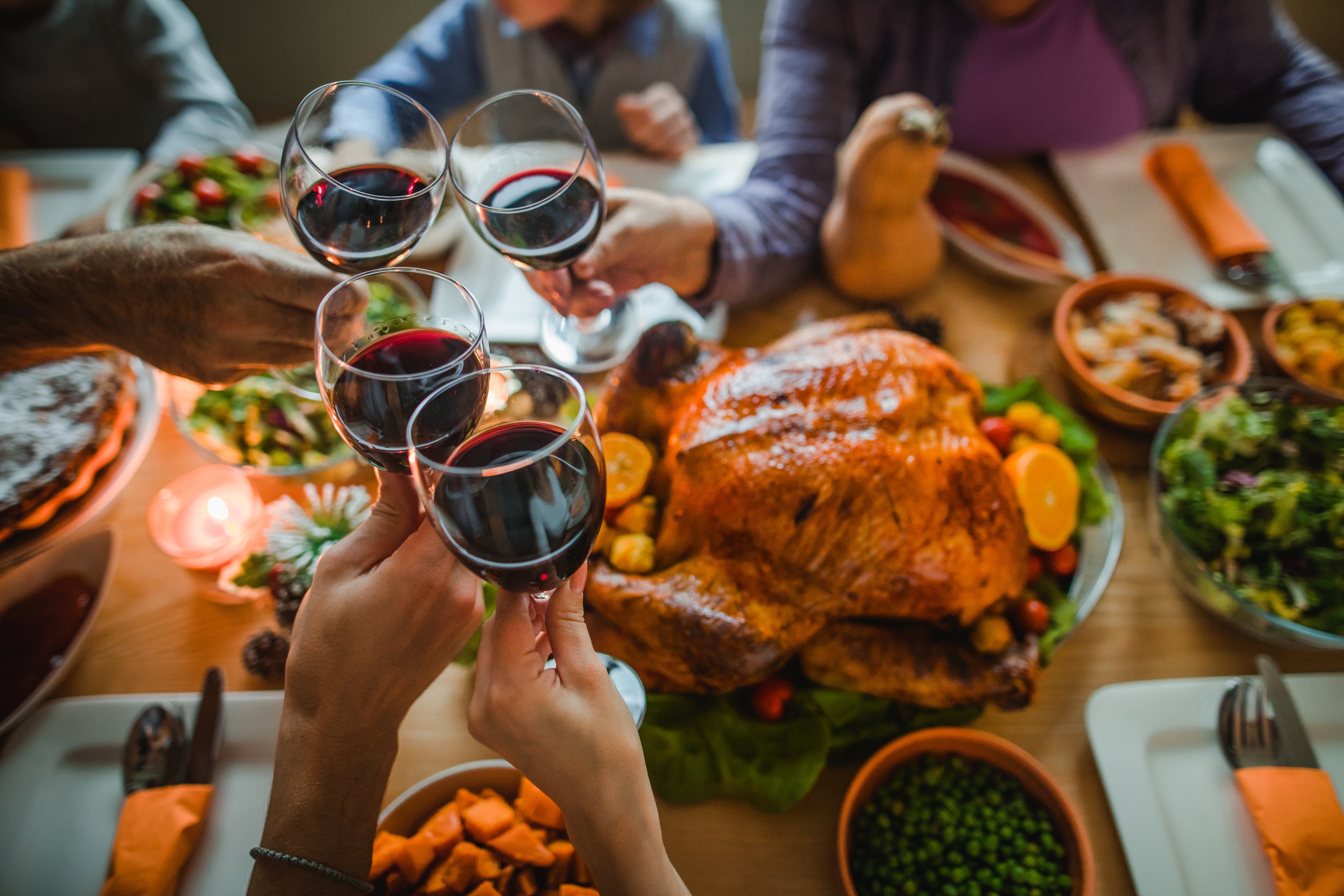Britain spends £13bn on festive party at supermarkets – but inflation leaves nasty hangover
Premium own-label products were in demand of the festive period, but prices were 3.7 per cent higher


In defiance of winter skies and economic gloom, Britons ate, drank and were merry over Christmas – pouring a staggering £13bn into grocers’ tills over the four weeks to 29 December.
The average household dropped £460 on take-home groceries, according to Kantar, which also reported that December was the busiest month in footfall since the panicky pre-lockdown rush of March 2020.
Star performers in the national shopping basket were premium own-label products; sales of this category jumped by 14.6 per cent. We’re talking here about Tesco Finest and the like. The reason I mention Tesco in particular is that its Finest £25 premier cru brut champagne showed Moet & Chandon a clean pair of heels in a blind tasting organised by Which?
Moet is a known brand, and as such expects you to pay through the nose to have it on your table: £44, approaching twice as much as the (better) own-label Tesco alternative.
Own-label is always cheaper than the branded equivalent, often considerably so. And often better. It seems the message has got home to shoppers; why spend your income keeping shareholders in the multinational conglomerates that own big brands in the style to which they have become accustomed? In the case of Moet, that would be France’s £249bn luxury goods monster, LVMH.
Partying clearly took priority over gifts this past festive season; British Retail Consortium (BRC) figures show that life elsewhere on the high street is rather less rosy.
In the three months to December – the “golden quarter” in which retailers make their money – sales growth was a dismal 0.4 per cent year on year. After inflation, the amount of product that was shifted actually fell. December was a little better, but there still wasn’t much festive cheer around.
“Non-food was particularly hard-hit... food sales fared better over the Christmas period, ticking up slightly from the previous year,” said Helen Dickinson, the BRC’s chief executive who took the opportunity to take a fresh shot at Rachel Reeves’ decision to increase employer national insurance contributions (NICs).
“The regulatory and tax burden on retailers will increase costs by £7bn from rising national insurance contributions, an increasing national living wage, confirmed in the Budget, and new packaging levies. With little hope of covering these costs through higher sales, retailers will likely push up prices and cut investment in stores and jobs, harming our high streets and the communities that rely on them,” she said.
Clearly, grocery is the sector to be in if you’re an investor and should do just fine over the coming year. The same is likely true for workers. You can take any moaning from grocery CEOs with more than just a pinch of salt.
As for the rest, 2025 is shaping up to be a tough year. They’re best left on the stock exchange’s shelves, with a few exceptions (Next being one of those, having just raised its profit forecast). I wouldn’t be at all surprised to see one or two big names falling over, which could create a political problem for a government dealing with more than a few of those.
But the party-pooper for shoppers is inflation, which Kantar suggests is starting to heat up again. It puts the figure for food and drink at 3.7 per cent, its highest level since March 2024. Remember too that inflation is cumulative. This latest rise comes on top of the previous sharp increase in food prices recorded during the inflationary spike of 2022/23 when the official figure peaked at a horrific 19.2 per cent. For the record, the headline rate topped out at 11.1 per cent.
I would expect the official data to show something similar; Kantar data is impressively thorough. I still think the Bank of England will probably cut rates in February, but this is the sort of inflation figure that alarms monetary policymakers. A cut isn’t a done deal.
Many consumers – my own family included – responded to the last spike in prices by switching to own-brand goods. At Christmas, the nation traded up with the premium variety. Shopping smarter will save you money, reducing your personal rate of inflation. But there are limits: you can only switch to own-label produce once.
If food price inflation continues to heat up, Britain’s £13bn Christmas party will come with quite the hangover.






Join our commenting forum
Join thought-provoking conversations, follow other Independent readers and see their replies
Comments